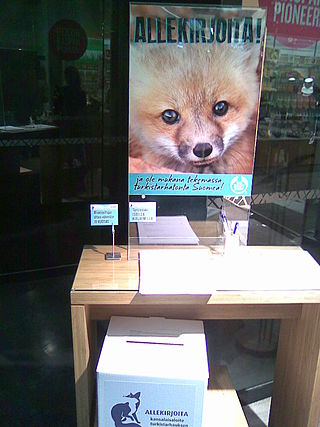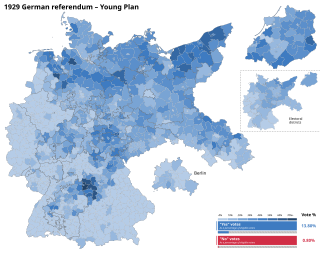
A popular initiative is a form of direct democracy by which a petition meeting certain hurdles can force a legal procedure on a proposition.

Berlin Tempelhof Airport was one of the first airports in Berlin, Germany. Situated in the south-central Berlin borough of Tempelhof-Schöneberg, the airport ceased operating in 2008 amid controversy, leaving Tegel and Schönefeld as the two main airports serving the city for another twelve years until both were replaced by Berlin Brandenburg Airport in 2020.

Mitte is the first and most central borough of Berlin. The borough consists of six sub-entities: Mitte proper, Gesundbrunnen, Hansaviertel, Moabit, Tiergarten and Wedding.

The Velodrom (velodrome) is an indoor track cycling arena, in the Prenzlauer Berg locality of Berlin, Germany. Holding up to 12,000 people, it was also Berlin's largest concert venue, until the opening of O2 World in 2008.

The Abgeordnetenhaus of Berlin is the state parliament (Landtag) of Berlin, Germany according to the city-state's constitution. In 1993 the parliament moved from Rathaus Schöneberg to its present house on Niederkirchnerstraße in Mitte, which until 1934 was the seat of the Prussian Landtag. The current president of the parliament is Cornelia Seibeld (CDU).
The number of elections in Hamburg varies. Hamburg has a state election every five years, the elections for the state parliament. There are also elections to the federal diet of Germany, the local elections of the diet of the boroughs (Bezirksversammlungen) and every five years to the European Parliament. All elections take place by universal adult suffrage and are regulated by law.

The Monument to Freedom and Unity is a planned national German monument in Berlin commemorating the country's peaceful reunification in 1990 and earlier 18th, 19th and 20th century unification movements.

The 1929 German Referendum was an attempt during the Weimar Republic to use popular legislation to annul the agreement in the Young Plan between the German government and the World War I opponents of the German Reich regarding the amount and conditions of reparations payments. The referendum was the result of the initiative "Against the Enslavement of the German People " launched in 1929 by right-wing parties and organizations. It called for an overall revision of the Treaty of Versailles and stipulated that government officials who accepted new reparation obligations would be committing treason.
Referendums in Germany are an element of direct democracy. On the federal level only two types of a mandatory binding referendum exist – adopting a new constitution and regional referendums in case of restructuring the states. On the state level, all states have various types of statewide and municipal referendums.
The Pirate Party Berlin is the state chapter of the Pirate Party Germany in the city-state of Berlin and was the first chapter of the Pirates to enter a Landtag, getting elected to the Abgeordnetenhaus of Berlin in 2011. The party divides itself into so-called Crews at the local level. Work groups on specific themes are called Squads. Since 2010, the national association has used the software LiquidFeedback for intra-party decision-making.

A referendum on the remunicipalization of the energy supply in Berlin was held on 3 November 2013. Prompted by the Neue Energie für Berlin citizens' initiative in June 2013, it was approved by 83% of those who voted. However, the referendum failed due to insufficient voter turnout. 24.2% of Berlin voters voted in favor, but the quorum required 25% or more to do so.

Fußball-Club Viktoria 1889 Berlin Lichterfelde-Tempelhof e.V., commonly known as FC Viktoria 1889 Berlin or Viktoria Berlin, is a German association football club based in the locality of Lichterfelde of the borough of Steglitz-Zehlendorf in Berlin. The club was formed on 1 July 2013 from a merger of BFC Viktoria 1889 and Lichterfelder FC. The club has the largest football department in Germany. The club also has 1,600 active members.

Rainer Michael Müller is a German politician of the Social Democratic Party (SPD) who served as Governing Mayor of Berlin from 2014 to 2021 as a member of the German Bundestag since the 2021 elections, representing the Berlin-Charlottenburg-Wilmersdorf district.

The LP12 Mall of Berlin, also known as Leipziger Platz Quartier or simply Mall of Berlin, is a shopping mall in the Mitte borough of Berlin, Germany. It forms the northeastern part of the octagon at Leipziger Platz.

Dilek Kalayci is a Turkish-German politician of the Social Democratic Party (SPD) who served as State Minister for Health, Care and Equality (2016–2021) and as Deputy Governing Mayor of Berlin and State Minister for Labour, Integration and Women (2014–2016) in the government of Mayor Michael Müller.

Tempelhofer Feld historically was an area in Berlin used for military practice, and as a parade ground of the Berlin garrison. It belonged to the Tempelhofer uplands on the Teltow plateau, in the south of Berlin. Tempelhofer Feld is closely linked to German military and aviation history, as well as German football history. Today it is a developed area, with the exception of the Tempelhofer Feld park on the site of the former Tempelhof Airport.

The 2021 Berlin referendum, formally referred to as Deutsche Wohnen & Co. enteignen or DW enteignen, was a referendum held and passed in Berlin in 2021. Voters were asked if they approved of the expropriation of the property of private real-estate companies with 3,000 or more units in the city, through public purchases by the Berlin state government. This would affect 243,000 rental apartments out of 1.5 million total apartments in Berlin. The largest such real-estate company is Deutsche Wohnen, for which the initiative is named, followed by Vonovia. In total, the referendum would impact 12 large real-estate companies.

The Constitutional Court of the State of Berlin is the state constitutional court of Berlin. It has its seat at the Kammergericht building in the Schöneberg district of Berlin. Since November 2019, Ludgera Selting is the president of the court.

The 2023 Berlin climate neutrality referendum, also referred to as Berlin 2030 climate-neutral, was a citizens' initiative launched in Berlin in 2018. It was the subject of a city-wide referendum on 26 March 2023, commonly called the Klima-Volksentscheid. Voters were asked whether the Climate Protection and Energy Transition Act of 2016 should be amended. The primary goal of the referendum was to legislate a goal of carbon neutrality by the year 2030 rather than the existing goal of 2045. Since the referendum proposed specific amendments to the law, its result would have been legally binding. In order to pass, the proposal needed to be approved by a majority of voters and receive approval from a quorum of over 25% of registered voters. While 50.9% of those who participated voted in favour, as turnout was approximately 18%, the 25% quorum was not met.

Regine Günther is a German politician. From December 8, 2016, to December 21, 2021, Günther served as Senator for Environment, Transport, and Climate Protection in the Berlin Senate. Prior to this role, she directed the Climate Protection and Energy department at WWF Germany for 16 years. Later, she held the position of Director General for Policy and Climate at the organization and served as Interim Climate and Energy Practice Leader at WWF International.

















